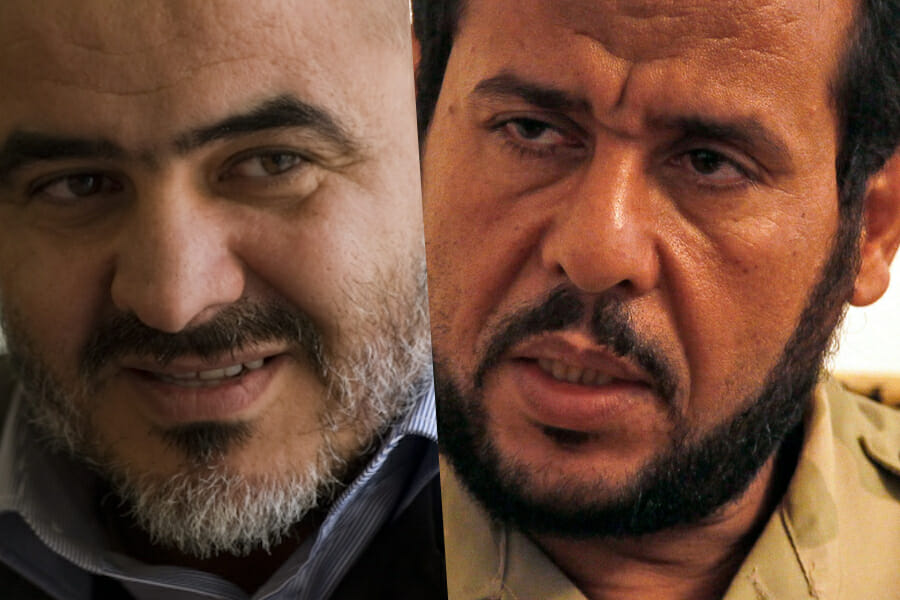
Libya’s Coming Islamist Government
Like the Tunisian and Egyptian uprisings this year, the Libyan uprising presented a liberal, democratic face to the world, leaving the impression that what will replace the ancien regimes in these countries would be roughly representative not only of western-style democracies, but also of the aspirations of the average person in the street. Now that the dust has mostly settled, this appears not to be the case. Not only is it clear now, that in the case of Egypt, the military-led ‘transitional’ government intends to cling to power for at least another year, but the newly installed government in Tripoli may end up fulfilling the worst fears of the West by becoming an Islamist-led government.
Islamists appear to be gaining control – or have already gained control – of the emerging government in Libya. The new Tripoli Municipal Governing Council is led by a member of the Muslim Brotherhood – Abel al-Rajazk Abu Hajar. The country’s most influential politician – Ali Sallabi – is an Islamic scholar. And the country’s most powerful military leader – Abdel Hakim Belhaj – is the former leader of a group believed to be aligned with Al Qaeda. Belhaj is seeking to unseat the nominal prime minister of the interim government, Mahmoud Jibril, the U.S. trained economist who has criticized the Islamists.
Is there any real reason to believe that the evolving government is likely to be either moderate or democratic? The ‘democratic’ forces within Libya have already appear to have been crushed.
The Muslim Brotherhood members of the interim government, who currently dominate the Governing Council, have declared their intention to impose fatwas, ban theater, prevent women from driving, and eliminate art that takes a human form. Article one of the ‘new’ Libya’s draft Constitution states: “Islam is the Religion of the State, and the principal source of legislation is Islamic Jurisprudence (Sharia).” In other words, the law of Islam is the intended law of the ‘new’ Libya.
I find myself wondering if the powers that be in Washington and Europe had any idea that this could be the result of their funding and support for the Libyan resistance movement. According to the Guardian newspaper, the answer appears to be ‘yes.’
It notes that Belhaj, the former rebel commander and current military leader, had been the focus of MI6 for some 20 years. According to Wikileaks, the U.S. and British governments have been aware of his links to extremist Islamist movements and Al Qaeda the entire time. Even though Belhaj had apparently been ‘deradicalized’ as recently as last year – and had recanted support for indiscriminate bombings and the targeting of civilians in attacks undertaken by his former brethren in the Libyan Islamic Fighting Group – the NATO allies embraced him and his band of fighters solely because of their intent to unseat Gaddafi.
So the same man the CIA arrested in 2004, placed into custody, sent to the Gaddafi government, and was tortured for 7 years because he was allegedly linked with Al Qaeda, is about to run the show in Libya – and I haven’t heard any objection to this from any government in the West. It seems NATO has now created its own monster in Tripoli. It would be incredibly ironic if the Islamists do prevail, as they appear poised to do, and NATO was forced to consider attempting to unseat them from power. If so, it seems unlikely NATO would be successful. The only reason NATO’s efforts to unseat Gaddafi succeeded is because of Belhaj and his fighters. Who would NATO propose to recruit to remove Belhaj and his crew? Gaddafi and his supporters?
The bottom line is that NATO was quick to embrace an ‘anything but Gaddafi’ approach to regime change, and cared less than it should have about who it was embracing to reach the goal line. Early on in this process, questions were raised about who exactly these ‘freedom fighters’ were. Most analysts assumed NATO had done its homework and actually knew. The truth appears to be that either NATO didn’t know or it knew and didn’t care – either of which are unacceptable. Just look at the result. What impact might an Islamicized government in Tripoli have on the composition of the future governments in Egypt, Tunisia and beyond?
Having risen to power with the full support of the West in Tripoli, the Muslim Brotherhood and Islamists throughout the region have gained legitimacy from the West that they would have had a hard time gaining through the ballot box themselves. Perhaps that is the greatest irony of all. In terms of what all this implies for the future of the ‘perpetual’ Arab Spring, regrettably, the hopes and aspirations of tens of millions of ordinary people are in the process of being pulverized.
Stability and economic growth are being replaced by instability and economic degradation which threaten to define the medium- or long-term landscape of the region. The average man on the street is learning a harsh lesson in what is implied by attempting to make the transition to living under a democracy. Unfortunately, it now appears that the majority of these people may never actually experience it.

